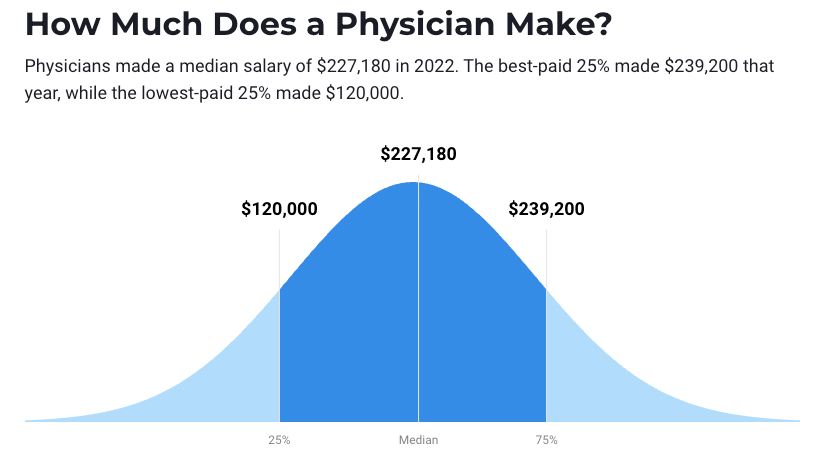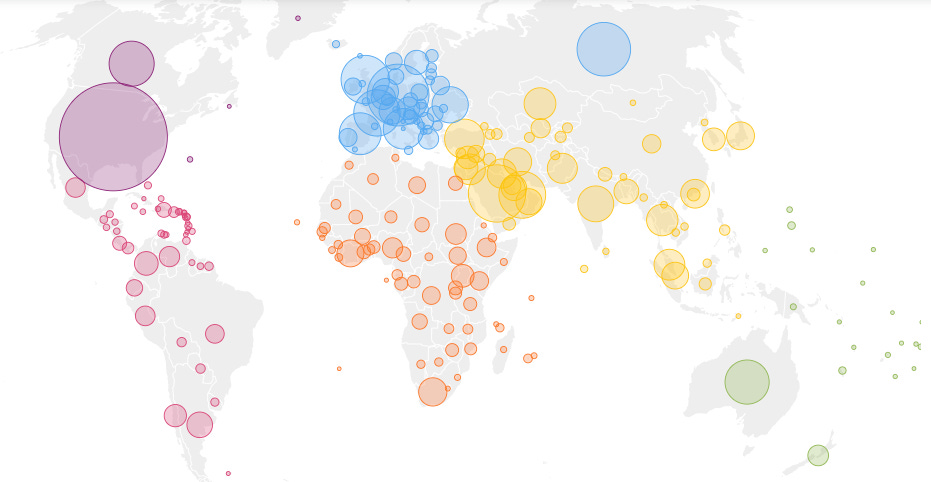A 33 year old real estate agent and investor with over $120M in residential real estate sales. This is my way of sharing actionable ideas that will make you a smarter and wealthier investor.
Capitalism vs Communism
Nobody knows how to make this pencil, but it still gets made.
That might sound ridiculous, but it's true. Milton Friedman holds up an ordinary yellow pencil in this video, and explains how no single person can make this pencil. The wood is grown in some part of America. The tools and implements need to chop the wood were manufactured in some distant unit with metal ore that came from far away. The yellow paint that coats the pencil comes from someplace else. The eraser at the end of the pencil was made with rubber manufactured in Malaysia, where rubber trees weren’t even native till South American cultivators introduced them. The pencil's "lead" is actually compressed graphite, probably mined in South America. The brass ferrule, the glue, they all come from different places. People from around the world who speak different languages, follow different religions, with totally different value systems, who would probably not get along if they ever came face to face came together to make this pencil. Thousands of people traded seconds of their time so that you could save a minute of your time to buy a pencil at the local store for a reasonable price. That's the beauty of the invisible hand of capitalism – it doesn't just get things done, it also maintains harmony. Milton Friedman wasn't the first person to endorse the virtue of capitalism. In fact, this story was first published as "I, Pencil" by Leonard Read, and it's an example of how all the things we take for granted – from the smallest conveniences to massive infrastructure, is enabled by capitalism with no centralized control. But there's another school of thought, that we need more oversight, more control, and we'd do better off if the government took care of everything. Taken to the extreme, this is communism. Jubilee recently did the unthinkable by putting capitalists and communists in the same room to argue their differences. Tai Lopez, Hannah Cox, and Cam argued for capitalism while Molombo, Bunny, and Eddie argued for communism. As someone who's firmly in the capitalist camp, I was still open to learning something new and seeing what we could improve with our system. Here's my take on the definitive showdown between capitalism and communism: Would America be a more powerful country under communism?According to Jubilee’s poll only 11% of people answered yes. The argument from the communist team here was that capitalism favors only the employees in highly technical jobs, and that communism would be great for creators who would be paid the same as other professions. Now I see a couple of problems with this: First, it disincentivizes innovation and hard work. The uncomfortable question that we need to answer is – in a communist world where everyone does what they want, who does the jobs that nobody wants to do? There are essential jobs like growing food and making clothes, unpleasant jobs like collecting the garbage, and hazardous jobs like fighting in the military where the incentive and the reward you get is what motivates people to take part in them. There's literally no incentive for people to risk their life's savings on a cause if not for the possibility of profit. Entrepreneurs work through the best stage of their life forgoing social gains – I won't call this sacrifice, because they’re doing something motivated by the reward, and in this case, it's money. Activists do the same thing – They're motivated to make the world a better place. In capitalism, you get to choose your incentive structure. That's the difference. But how does this affect society as a whole? Who has better living standards?Which government system is better in terms of living standards – Capitalist or communist? The HDI (Human Development Index) is a standard measure to compare healthcare, education, income, and living conditions. The US has a HDI of 0.92 and ranks 21st on the list of countries – meanwhile, Cuba, one of the most cited examples for great healthcare, is 83rd on the list with a HDI of 0.764. The problem with healthcare in communist states is that doctors, who arguably undergo the most rigorous education and training, are barely compensated for their effort, because most of their income is taken by the government. In fact, the Cuban government actually exports doctors abroad. The doctors still make only around $1,000 per month (for comparison, even the lowest paid physicians in the US make $10,000 per month) but they are still happy to leave because the dollar arbitrage is so great that it lets them support their families back home, much better than if they stayed in Cuba.
Capitalism has some pretty bad problems with healthcare too. I had written a Twitter thread about how the US healthcare system is broken – and it's no secret that insurance companies and increasing centralization have created an incentive system that's left the US as the #23 country in terms of healthcare while it's #5 in terms of living standards. This is despite the US being one of the countries that spends the most on healthcare. While comparing living standards though, there's a simpler test we can apply – how many people are willingly entering or leaving capitalist and communist countries? The United States still rules as the country that sees the most immigration (despite having quite strict immigration laws) – here's how other countries are doing.
Does Government aid help?In the Jubilee poll – 24% voted yes, 76% voted no. It's true that having Government Aid can create an incredible safety net and help during unforeseen circumstances like the pandemic. But benefit programs can have unintended consequences as well. For example, the stimulus checks during the pandemic were intended to boost spending, but people actually channeled them into saving and paying down debt. Hannah Cox quoted another example: Benefit cliffs. Many benefit programs are designed to benefit people earning below a certain threshold. The catch is that if people dependent on these benefits try to raise their living standards by earning more, they suddenly become ineligible for the benefits and can plunge into economic insecurity – or more likely be compelled into keeping their extra income off the records – neither of which is recommended. Whenever benefits programs are designed, policymakers need to make sure that their solutions don't lead to more problems (like the cobra effect). What sort of intervention actually helps?I have to acknowledge one of the things that’s problematic with capitalism, again – healthcare is a real problem. Eddie on the communist side of the debate was arguing that over 40,000 Americans died last year because they did not have access to health insurance. From my personal experience, I find the healthcare system to be really complicated in the US. If you need to see a specialist, then you need to see a general physician first and then get a recommendation, and it has to tick all the boxes of your insurance provider, and so on… It’s just much easier to pay out of pocket. But obviously, that isn’t an option that scales. Eddie suggests that healthcare (including big pharma) should be nationalized. But the question is: How are prices and health insurance premiums set in the absence of a free market? The same problem comes up with issues like rent control and education subsidies. If the government subsidises education, colleges can raise fees to any amount that they wish, and the subsidies will technically come from the taxpayers. Rent control just distorts the market – instead of making housing more affordable, it diverts money away from housing construction to more profitable areas leading to a drop in inventory and a worse situation than where people started. Where exactly is government intervention necessary and how much intervention is enough? According to Hannah, the government is needed for only three purposes.
“Now what the US has has gone so far beyond that,” she says. I agree with what she’s saying – and I want to add something. The problem with uncontrolled capitalism is something called “The tragedy of the commons.” If every player in a system optimizes for their own gain, it can encourage a lot of innovation and growth, but it can also cause damage to the shared resources on which there is no external control. This is where some governmental control helps the most. That leads to the next question: Do only the rich benefit from capitalism?I find it surprising that people believe this. Molombo in the video argues that “whichever class controls the government benefits, and in capitalism, it’s the bourgeoisie, the job creators, who have complete control.” But like me, almost everyone else in the video disagreed. Yes, the rich and the job creators do have a lot of benefits under capitalism, but that doesn’t mean that only the rich benefit. Capitalism creates an incentive structure where everyone has equal opportunity to climb the ladder and rise to the top. Nassim Taleb talks about this through a concept called dynamic equality:
“More than half of all Americans will spend at least a year in the top ten percent…Only ten percent of the wealthiest five hundred American people or dynasties were so thirty years ago; more than sixty percent of those on the French list were heirs.”
This means that America, in large part because of its capitalist system, gives everybody the opportunity to work their way to the top. There's no perfect economic model. This is something that all six people in the debate agreed unanimously on – no form of government is perfect, issues like healthcare, housing, and education that affect the entire population have no simple solution, every form of government is susceptible to corruption, and we just have to work with what we’ve got and make it better. Even free speech, which is considered one of the best things about America, isn’t as “free” any more – yes, you can say anything you want but then the algorithm gods might decide to shadowban you if they don’t like what you’re saying. The question is: Are there more pros than there are cons, and which form of government supports the value systems that you think are really important? As somebody who values equal opportunity, hard work, and growth, I’m still rooting for capitalism here. If you have something to add or you have a different opinion, let me know by replying to this email! I read every mail, and I’ll try my best to reply. Meanwhile, if you found this useful, please share it with one friend whom you think needs to see this. See you next week! 113 Cherry St #92768, Seattle, WA 98104-2205 |
Graham’s Newsletter
A 33 year old real estate agent and investor with over $120M in residential real estate sales. This is my way of sharing actionable ideas that will make you a smarter and wealthier investor.


